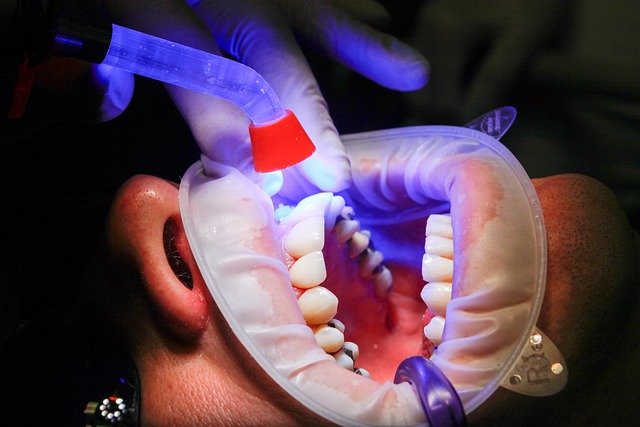Personalized trauma counseling is a revolutionary approach to PTSD treatment that addresses each individual's unique experience. Unlike generic methods, it considers cultural background, coping mechanisms, and personal circumstances to create tailored treatment plans. By fostering trust and active listening, therapists empower clients to process traumatic memories and emotions effectively. This personalized touch enhances healing, promotes long-term mental well-being, and increases the success rate of PTSD treatment. Accessing these tailored services is crucial for those struggling with post-traumatic stress disorder.
Personalized trauma counseling offers a revolutionary approach to healing from post-traumatic stress disorder (PTSD). Unlike traditional methods, this tailored therapy recognizes that each individual’s trauma experience is unique. By understanding personal histories and coping mechanisms, counselors can design effective strategies for PTSD recovery. This comprehensive guide explores the benefits, techniques, and accessibility of personalized trauma counseling, providing insights into why it’s becoming a preferred choice in the realm of PTSD treatment.
Understanding Personalized Trauma Counseling: A Tailored Approach

Personalized trauma counseling is a revolutionary approach in PTSD treatment, recognizing that every individual’s experience with trauma is unique. Unlike one-size-fits-all methods, this tailored strategy delves into the specific circumstances and needs of each client. By understanding their personal history, cultural background, and individual coping mechanisms, counselors can create a safe and supportive environment. This personalized touch allows for more effective processing of traumatic memories and emotions, fostering healing and growth.
The process involves collaborative goal-setting, where clients and counselors work together to design a treatment plan aligned with their aspirations. This collaboration ensures that the counseling journey is client-centered, making it more engaging and impactful. By adapting traditional trauma therapy to individual needs, personalized counseling offers a promising path toward overcoming PTSD and promoting long-term mental well-being.
The Impact of Trauma on Individuals: Unique Challenges and Experiences

Trauma significantly reshapes an individual’s life, creating unique challenges that vary widely from person to person. Beyond the immediate physical impact, trauma often leads to complex emotional and psychological responses such as anxiety, depression, flashbacks, and nightmares—symptoms that can last for years and impair daily functioning. For many individuals, these symptoms manifest as Post-Traumatic Stress Disorder (PTSD), a mental health condition characterized by intense and distressing memories of the traumatic event.
Understanding that each person’s trauma story is distinct is crucial in personalized trauma counseling. What works for one individual may not be effective for another. Factors like cultural background, coping mechanisms, support systems, and the nature of the trauma itself all play a role in shaping an individual’s experience and their need for specific types of PTSD treatment. Tailored interventions that address these unique aspects can help individuals process their traumatic experiences, develop healthy coping strategies, and regain a sense of control over their lives.
Traditional PTSD Treatment Methods: An Overview

Traditional PTSD treatment methods often involve a combination of psychotherapy and, in some cases, medication. One widely recognized approach is cognitive-behavioral therapy (CBT), which helps individuals identify and change negative thought patterns related to their trauma. Another common method is eye movement desensitization and reprocessing (EMDR), where clients focus on traumatic memories while engaging in bilateral stimulation, such as side-to-side eye movements. These techniques aim to reduce the intensity of emotional responses to traumatic reminders.
Additionally, exposure therapy is a key component in many PTSD treatment plans. This involves gradually exposing individuals to situations or memories related to their trauma in a safe and controlled environment. Over time, this helps desensitize patients and reduce their fear response. Medications like selective serotonin reuptake inhibitors (SSRIs) are often prescribed to manage symptoms of anxiety and depression associated with PTSD.
Benefits of Personalization in Therapy for PTSD Recovery

Personalized trauma counseling offers a tailored approach to treating Post-Traumatic Stress Disorder (PTSD), recognizing that each individual’s experience and recovery journey is unique. By adapting therapeutic methods to suit specific needs, this method enhances the effectiveness of PTSD treatment. For instance, some clients may benefit from exposure therapy, where they gradually confront traumatic memories in a safe environment, while others might find comfort in cognitive-behavioral techniques aimed at challenging negative thought patterns.
This personalized touch allows therapists to navigate the complex landscape of trauma recovery more effectively. By recognizing cultural, psychological, and social factors that influence an individual’s response to trauma, counselors can deliver targeted interventions. This approach not only respects the complexity of human experience but also fosters a deeper sense of trust and engagement between the client and therapist, which is essential for successful PTSD treatment.
Techniques and Strategies for Effective Personalized Trauma Counseling

In the realm of personalized trauma counseling, various techniques and strategies are employed to effectively address complex emotional wounds. One key approach involves creating a safe and non-judgmental space where individuals feel empowered to share their experiences. Therapists utilize active listening skills to validate clients’ feelings, fostering trust and encouraging open communication. By tailoring interventions to individual needs, counselors can offer tailored support for post-traumatic stress disorder (PTSD) treatment.
Emphasizing empathy, therapists help clients make sense of their traumatic events, processing memories in a controlled manner. Cognitive behavioral therapy (CBT) is often integrated to challenge negative thought patterns and replace them with healthier coping mechanisms. Additionally, exposure therapy is utilized for gradual, controlled exposure to trauma-related triggers, helping individuals regain control over their lives. These strategies collectively contribute to the client’s emotional healing process, offering a personalized path toward resilience.
Accessing and Navigating Personalized PTSD Treatment Services

Accessing personalized PTSD treatment services is a crucial step in navigating one’s journey towards healing. Many individuals struggling with post-traumatic stress disorder (PTSD) often feel overwhelmed and unsure where to begin. The first step is recognizing that help is available and tailored to individual needs. Various specialized counseling centers, therapy clinics, and mental health organizations offer PTSD treatment programs designed to provide a safe and supportive environment for processing trauma. These services can be found through online searches, local community resources, or referrals from healthcare providers.
Navigating these services involves understanding one’s specific trauma and symptoms. Counselors and therapists employ various evidence-based approaches like cognitive behavioral therapy (CBT), eye movement desensitization and reprocessing (EMDR), or trauma-focused mindfulness practices to address PTSD. It is essential to find a treatment provider with whom you feel comfortable, as this fosters trust and encourages active participation in the healing process. Many resources are available to guide individuals in making informed decisions about their mental health care, ensuring they receive the most effective and personalized PTSD treatment.
